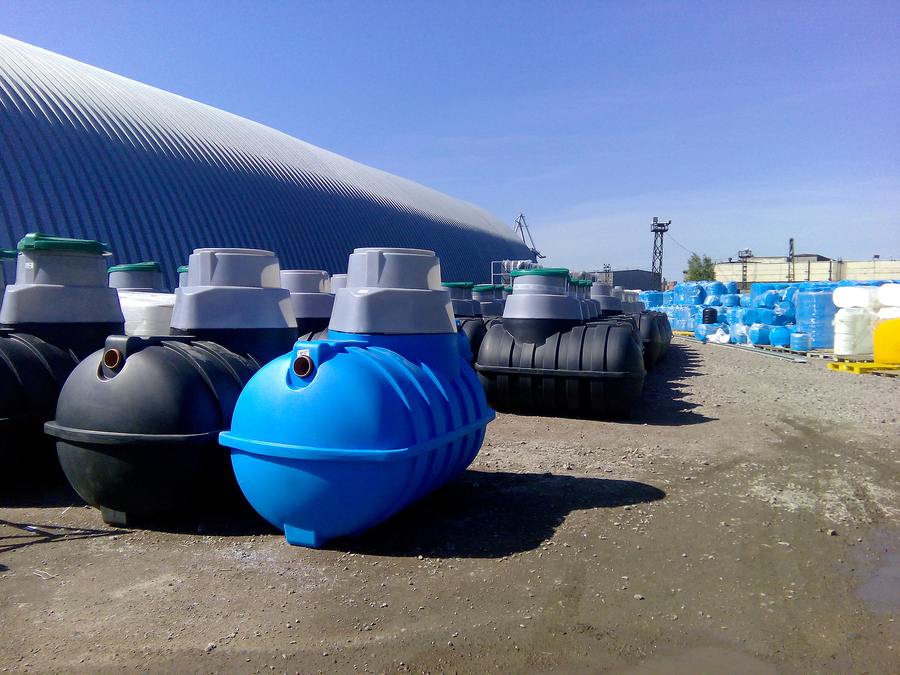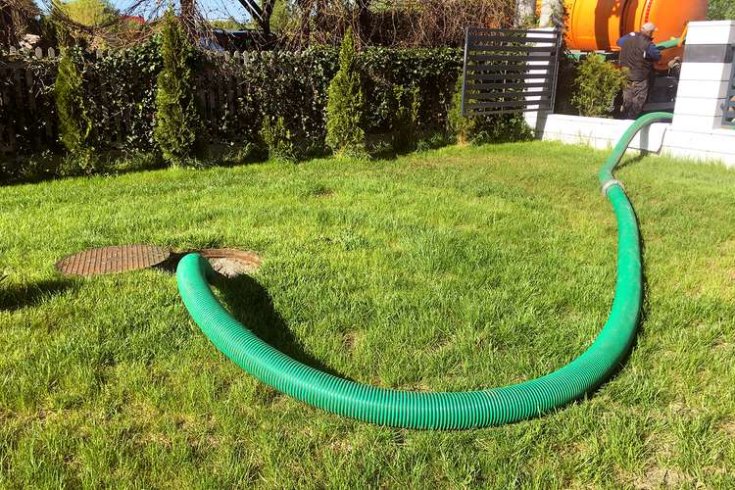
01
Septic tanks play a crucial role in managing household wastewater for millions of homes around the world. Proper maintenance and choosing the right materials for septic tanks are essential to ensure their longevity and efficient functioning.
Concrete septic tanks are among the most widely used and traditional options for wastewater treatment. These tanks are durable and long-lasting, with an average lifespan of 30 to 40 years if maintained properly. They are capable of withstanding external pressure and are relatively resistant to damage from tree roots. Concrete septic tanks are ideal for heavy clay or wet soil conditions, as they provide a stable base. However, they may be susceptible to cracks over time, leading to leakage issues. Regular septic tank pumping and inspections by a professional septic company can help identify and address any problems before they worsen.
Plastic septic tanks have gained popularity due to their lightweight nature and ease of transportation and installation. Made from high-density polyethylene, these tanks are resistant to rust and corrosion, ensuring a longer lifespan compared to traditional concrete tanks. Plastic septic tanks are also less prone to cracking, lessening the need for septic tank repair. Homeowners may prefer plastic tanks due to their cost-effectiveness and simple maintenance. However, periodic inspections and septic tank pumping remain crucial to prevent any blockages or buildup that could affect their functionality.
Fiberglass septic tanks offer a middle ground between concrete and plastic tanks. They are lightweight like plastic tanks but have the added benefit of being highly resistant to corrosion and rust. This characteristic makes them a durable choice that can last for several decades. Additionally, fiberglass tanks are relatively easy to install and do not require heavy machinery. Homeowners should still consult a septic tank installation expert to ensure proper placement and adherence to local regulations.
Steel septic tanks are less common than other materials due to their susceptibility to rust and corrosion over time. While they are sturdy and may last for several decades, their maintenance requirements are higher compared to other materials. Homeowners with steel septic tanks should pay close attention to signs of rust and undertake regular septic tank pumping to prevent solid waste from causing blockages and further corrosion. In regions with acidic soil, steel tanks may not be the best option, as the acidic environment can accelerate rusting.
To enhance the durability of concrete septic tanks and lessen potential cracking issues, some manufacturers offer concrete tanks with a plastic or fiberglass coating. This coating provides an extra layer of protection against corrosion and may extend the tank's lifespan. Homeowners considering this option should consult with Charlotte Septic Pros to ensure proper application of the coating.
The choice of septic tank material depends on various factors, including soil conditions, budget, and local regulations. Concrete, plastic, fiberglass, and coated concrete tanks are the most common types available, each with their unique benefits and considerations during septic tank repair and septic tank installation. Regular maintenance and inspections by a reputable septic company are vital to maximize the lifespan and efficiency of the septic system, regardless of the chosen tank material. Investing in the right septic tank and proper care can ensure lifelong health for your septic tank.

28
Why Is Sewage Backing Up into My Tub? When wastewater starts rising into your bathtub, it’s more than just unpleasant—it’s…
Read more
22
Can Bacteria Additives Eliminate the Need for Pumping? If you own a home with a septic system, you’ve probably seen…
Read more
12
A single slow drain in your home can feel like a minor inconvenience. Maybe the sink takes a little longer…
Read more
05
Are Slow Drains a Septic Issue or Just a Clog? Slow drains are one of those household problems that start…
Read more
02
What Septic Service Techs See That Homeowners Miss Most homeowners only think about their septic system when something goes wrong.…
Read more
21
Simple Habits That Protect Your Septic System A well-functioning septic system does its job quietly, but the moment something goes…
Read more
14
Pump Now or Pay Later: The Real Cost of Skipping Maintenance A properly functioning septic system is easy to forget…
Read more
11
Why Your Septic System Always Acts Up at the Worst Time Homeowners often feel that septic problems strike at the…
Read more
04
Early Warning Signs Your Septic Tank Needs Pumping For homeowners who rely on a septic system, routine maintenance is not…
Read more
29
Why Does My Septic System Smell Fine One Day and Terrible the Next? If you own a home with a…
Read more